Intelligent Process Automation (IPA)
Leverage Intelligent Automation to Transform Your Business
Boost efficiency, eliminate waste, and improve workflows with intelligent automation. This powerful technology combines AI with robotic process automation to jump-start your operational efficiency goals.
Convinced and ready to get started on your automation journey?
What Is Intelligent Process Automation?
Intelligent process automation (IPA) is the application of AI, machine learning, and optical character recognition (OCR) to robotic process automation (RPA). It converges fundamental process redesign and RPA and is superior to rules-based automation because it includes decision-making capabilities.
What Can You Do with Intelligent Process Automation?
- Eliminate error-prone, repetitive tasks with digital bots.
- Analyze processes and data for better decision-making.
- Overcome process bottlenecks to improve efficiency.
- Simplify workflows with end-to-end automation.
- Accelerate processes by removing human intervention.
- Improve experiences for customers and employees.
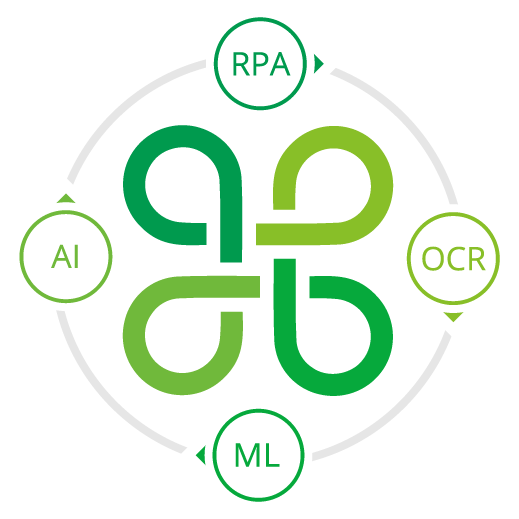
How Does Intelligent Process Automation Work?
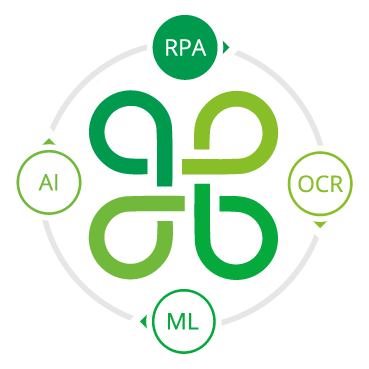
RPA Launches Our Process
Robotic Process Automation (RPA) increases efficiency and automates processes using bots. A bot is software that repeatedly executes scripts, learning over time, to free up bandwidth and resources for employees to do more impactful work. Any high volume, business-rules-driven, repeatable process qualifies for RPA.
Data Capture is Enhanced with OCR
Optical Character Recognition (OCR) is used to speed up the capability of converting semi-structured and unstructured data into structured formats that can be further automated by RPA. OCR is getting smarter and leverages technologies like Data Capture, Document Imaging and Machine Learning in order to extend process automations and allow companies to grow their business, not their operational costs. The Intelligent OCR capability allows organizations to automate a higher percentage of their processes and improve their overall time-to-market and ROI.
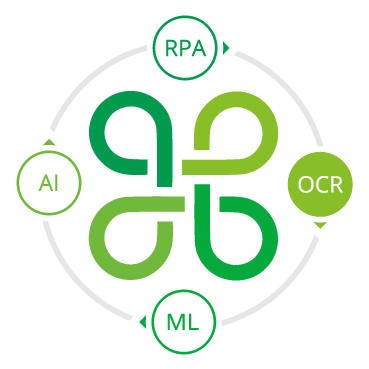
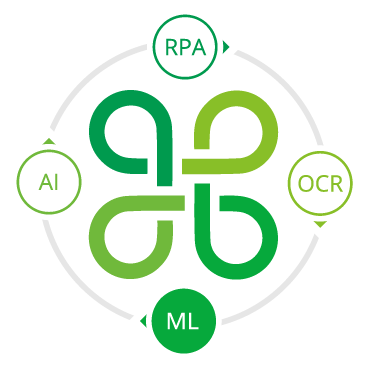
ML Improves Accuracy and Velocity
Machine Learning (ML) uses statistical modeling and algorithms to learn and improve accuracy and confidence of a decision without programming. It requires high volumes of data, so it is most beneficial after RPA is already in place. ML takes advantage of both pre-built and custom algorithms that commonly have a high ROI. This can include extracting keywords out of contracts, automatic classification of keywords, and other semi-structured data use cases like reading invoices or bills of lading.
AI Adds Agility and Process Improvement Insights
Artificial Intelligence (AI) is all the rage nowadays due to its ability to ingest unstructured data as broader automation is leveraged to provide more speed and advantage at companies and across society. We define AI as the ability for a machine to learn and perform tasks typically requiring human intelligence such as vision recognition, speech recognition, decision-making, and natural language processing. While AI is often discussed, targeted AI that focuses on business outcomes is the focus of intelligent automation and Ashling Partners.
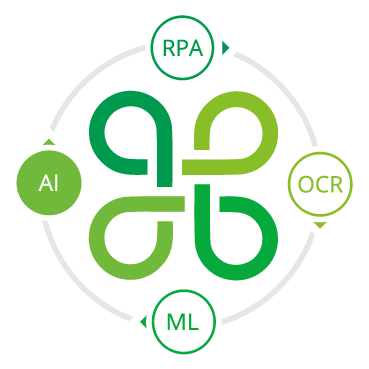
Automation Resources Hub
Downloadable Resources
Guides, eBooks, Infographics, White Papers, and Case Studies
Webinars
Browse by live and on-demand webinars across a wide variety of IA topics
Thought Leadership Articles
Your source for RPA and Hyperautomation thought leadership and education
